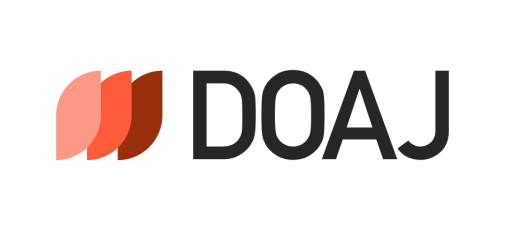Peningkatan Keterampilan Komunikasi Lisan Siswa sebagai Fungsi dari Teknik Instruksi Diri
Abstract
Abstrak: Tujuan penelitian ini adalah menguji keefektifan teknik instruksi diri untuk meningkatkan keterampilan berkomunikasi lisan siswa dalam proses pembelajaran. Penelitian ini merupakan penelitian eksperimental menggunakan single case experimental dengan desain A-B. Subjek penelitian yaitu tiga orang siswa kelas sepuluh yang memiliki keterampilan komunikasi lisan rendah dalam proses pembelajaran. Data penelitian dikumpulkan menggunakan instrumen keterampilan komunikasi lisan. Teknik analisis data yang digunakan adalah analisis statistik dengan teknik persentase, dan split middle technique serta teknik analisis klinis yang dinyatakan oleh significant other. Hasil penelitian menunjukkan bahwa setelah melaksanakan teknik instruksi diri, keterampilan berkomunikasi lisan subjek dalam proses belajar di kelas meningkat.
Permalink/DOI: http://dx.doi.org/10.17977/um001v2i32017p086
Keywords
Full Text:
PDFReferences
Alberto, P. A., & Troutman, A. C. (2012). Applied Behavior Analysis for Teachers. Pearson Higher Ed.
Bandura, A. (1963). The Role of Imitation in Personality Development. Dimensions of Psychology, 16, 121–153.
Bryant, L. E., & Budd, K. S. (1982). Self-instructional Training to Increase Independent Work Performance in Preschoolers. Journal of Applied Behavior Analysis, 15(2), 259–271.
Christenson, S. L., Reschly, A. L., & Wylie, C. (2012). Handbook of Research on Student Engagement. Springer Science & Business Media.
Crebert, G., Patrick, C. J., Cragnolini, V., Smith, C., Worsfold, K., & Webb, F. (2011). Teamwork Skills Toolkit. Diambil Juni, 20, 2013.
Davidson, J. E., & Sternberg, R. J. (2003). The Psychology of Problem Solving. Cambridge University Press.
Dewi, F. A., Atmoko, A., & Triyono, T. (2016). Keefektifan Teknik Self Instruction dalam Konseling Cognitive Behavior Counseling untuk Meningkatkan Efikasi Diri Sosial Siswa SMKN 2 Malang. Jurnal Kajian Bimbingan dan Konseling, 1(4), 172–178. http://doi.org/10.17977/um001v1i42016p172
Fiorentika, K. F., Santoso, D. B., & Simon, I. M. (2016). Keefektifan Teknik Self-Instruction untuk Meningkatkan Kepercayaan Diri Siswa SMP. Jurnal Kajian Bimbingan dan Konseling, 1(3), 104–111. http://dx.doi.org/10.17977/um001v1i32016p104
Goodwin, D. L., & Coates, T. J. (1976). Helping Students Help Themselves. Prentice-Hall.
Goss, P., Sonnemann, J., & Griffiths, K. (2017). Engaging Students: Creating Classrooms that Improve Learning. Victoria: Grattan Institute.
Haddadian, F., Majidi, A., & Maleki, H. (2012). The Effectiveness of Self-instruction Technique on Improvement of Reading Performance and Reduction of Anxiety in Primary School Students with Dyslexia. Procedia-Social and Behavioral Sciences, 46, 5366–5370.
Hariko, R. (2017). Landasan Filosofis Keterampilan Komunikasi Konseling. Jurnal Kajian Bimbingan dan Konseling, 2(2), 41–49. http://dx.doi.org/10.17977/um001v2i22017p041
Hitipeuw, I. (2009). Belajar & Pembelajaran. Universitas Negeri Malang.
Lestari, D. S. H. (2009). Hubungan antara Imitasi Perilaku Belajar dengan Motivasi Belajar pada Siswi SMP Vidatra Bontang. (Skripsi tidak diterbitkan) Universitas Ahmad Dahlan, Yogyakarta, Indonesia.
Miftah, M. (2009). Komunikasi Efektif dalam Pembelajaran. Semarang: Pustekkom-Depdiknas.
Nordlund, E. (2004). Oral Communication in English Classes at Senior High School.
Papageorge, N., & Gershenson, S. (2016). Do Teacher Expectations Matter? Diambil dari https://www.brookings.edu/blog/brown-center-chalkboard/2016/09/16/do-teacher-expectations-matter/
Putra, G. A. D., Suarni, N. K., & Putri, D. A. W. M. (2014). Efektivitas Konseling Behavioral dengan Teknik Modeling untuk Mengoptimalkan Penyesuaian Diri Siswa Kelas X SMK Negeri 2 Singaraja Tahun Pelajaran 2013/2014. Jurnal Ilmiah Bimbingan Konseling, 2(1).
Schunk, D. H. (1987). Peer Models and Children’s Behavioral Change. Review of Educational Research, 57(2), 149–174.
Refbacks
- There are currently no refbacks.
Copyright (c) 2017 Diah Ayu Pratiwi Ningsih, Edy Legowo, Rian Rokhmad Hidayat

This work is licensed under a Creative Commons Attribution-ShareAlike 4.0 International License.
Jurnal Kajian Bimbingan dan Konseling
ISSN 2503-3417 (online), ISSN 2548-4311 (print)
Email: jkbk.fip@um.ac.id
Find Jurnal Kajian Bimbingan dan Konseling on:
 This work is licensed under a Creative Commons Attribution-ShareAlike 4.0 International License |  |
View Visitor Stats







